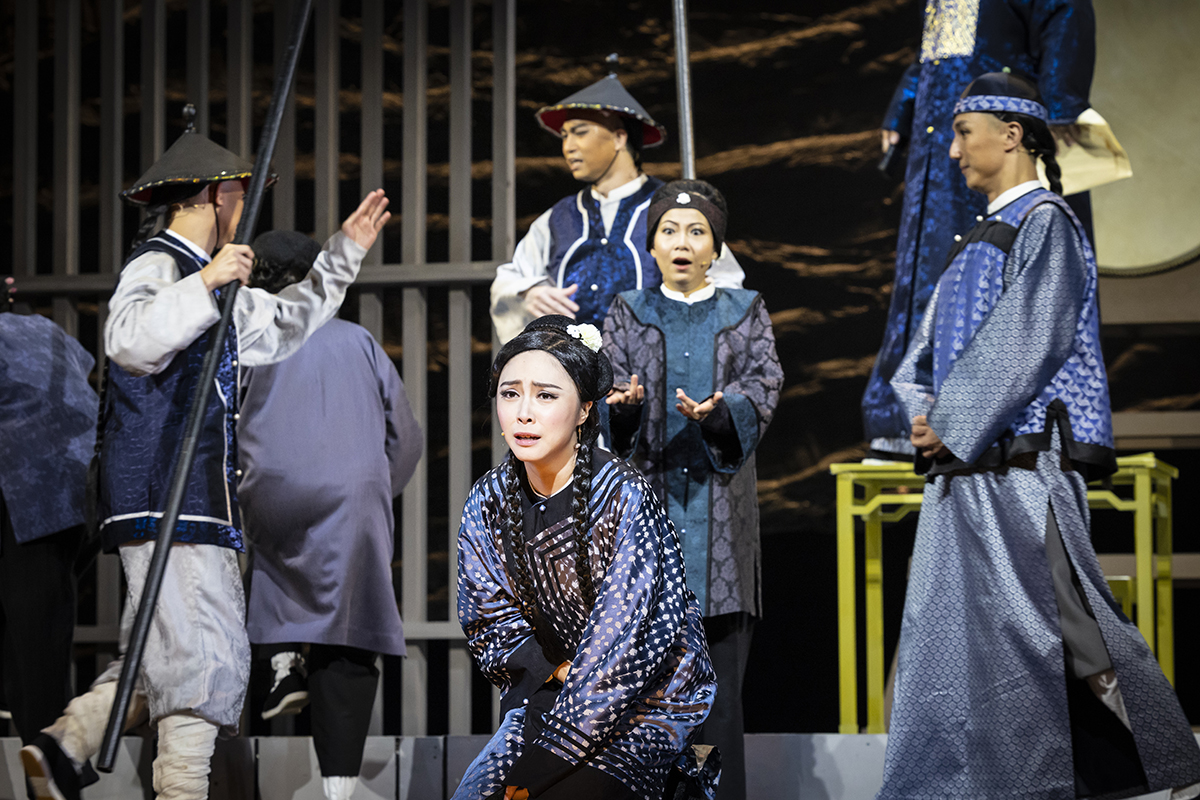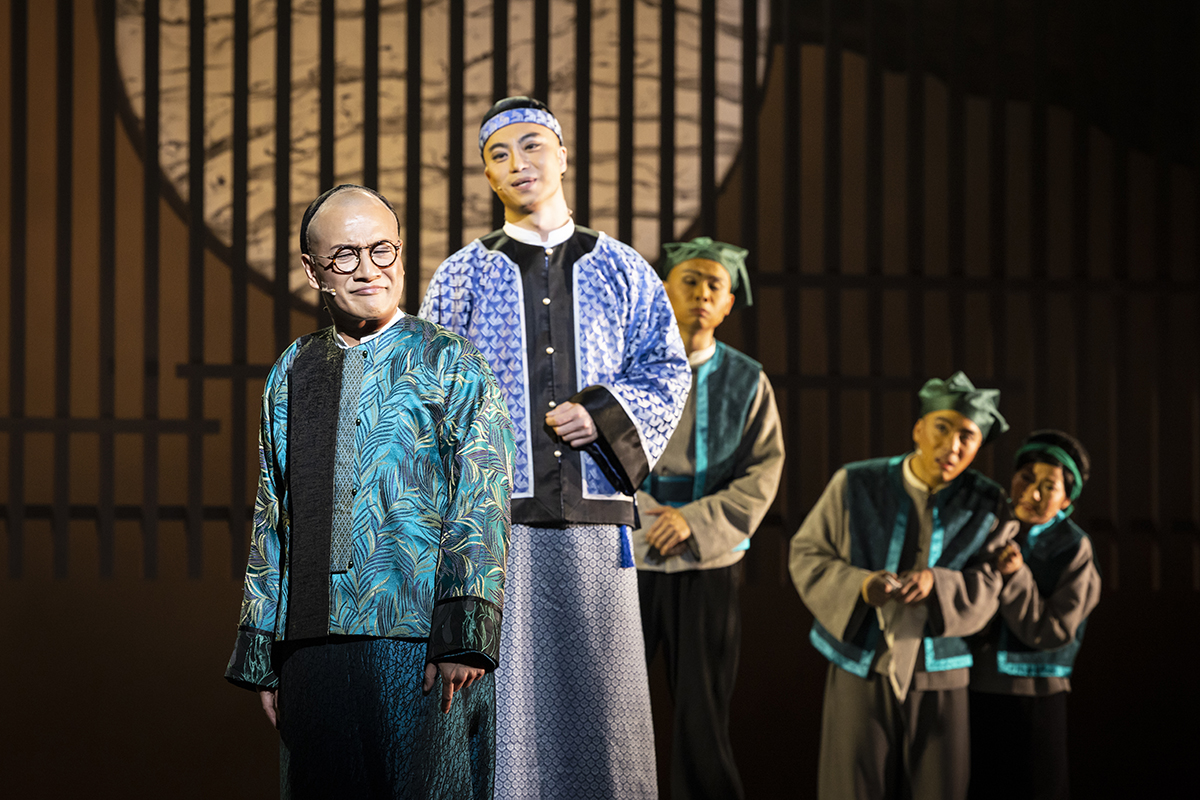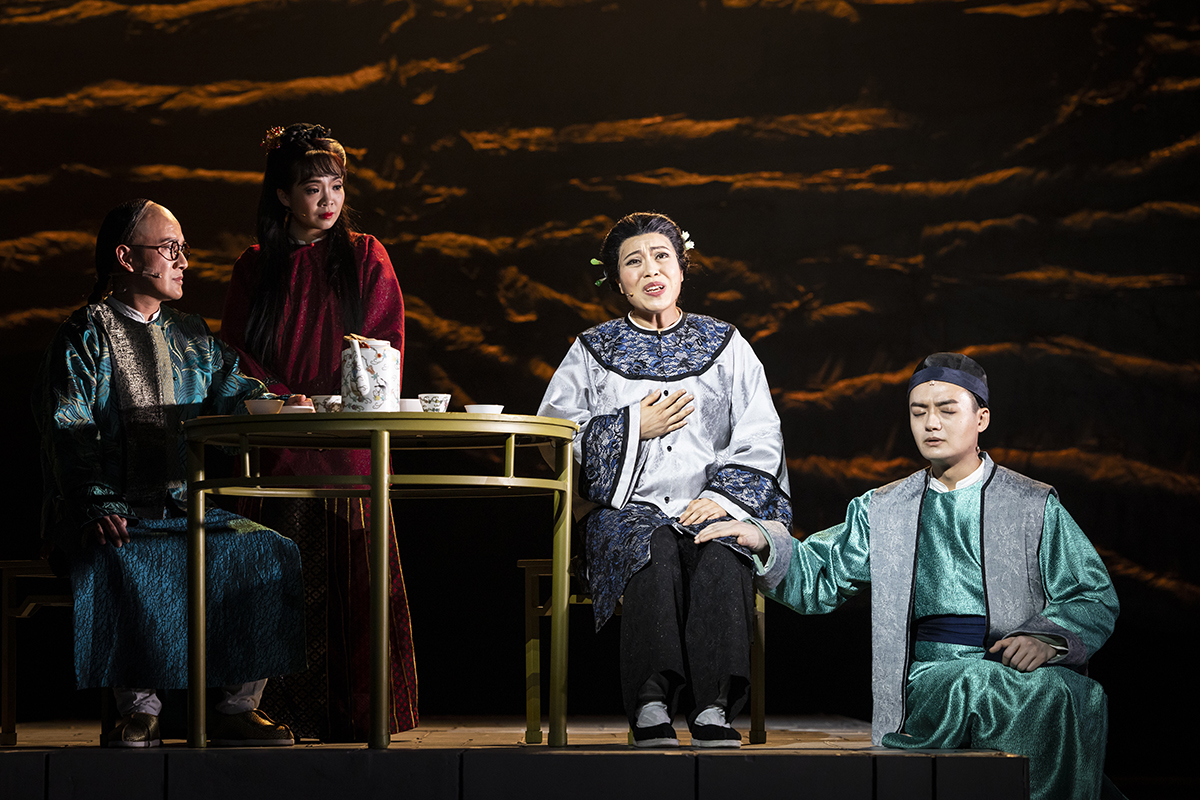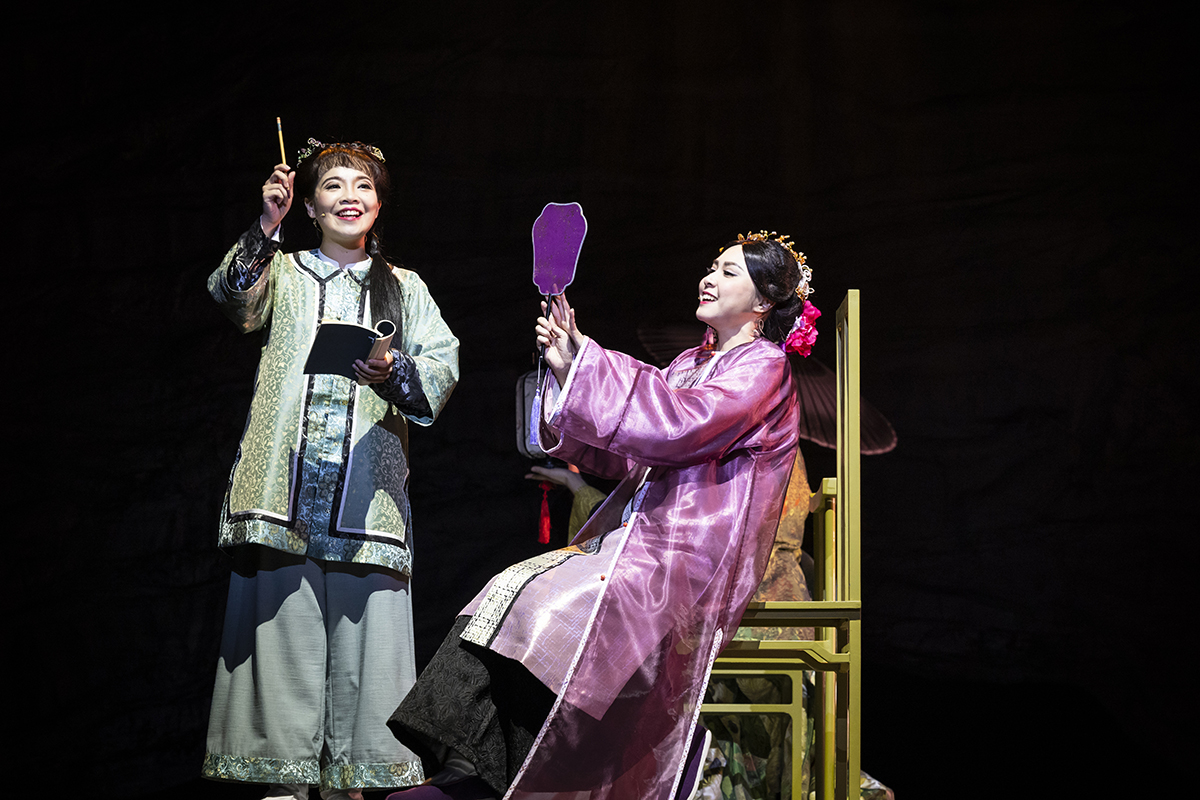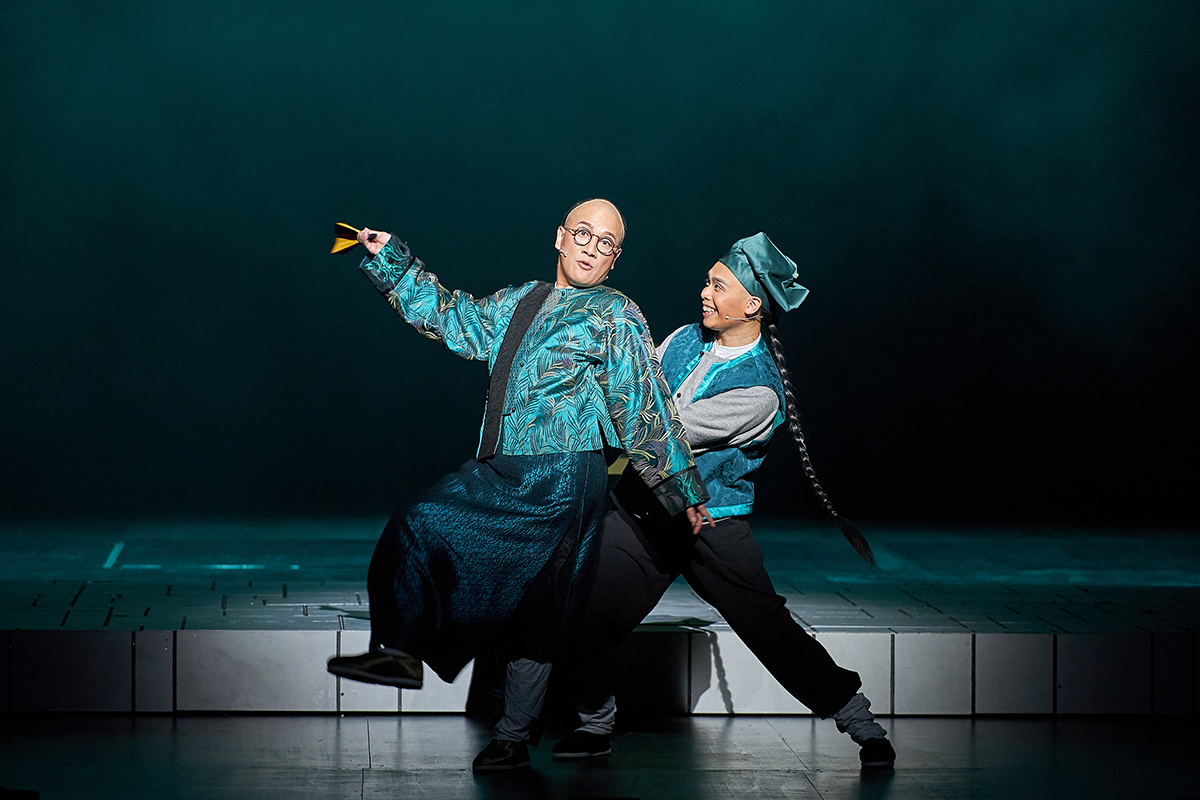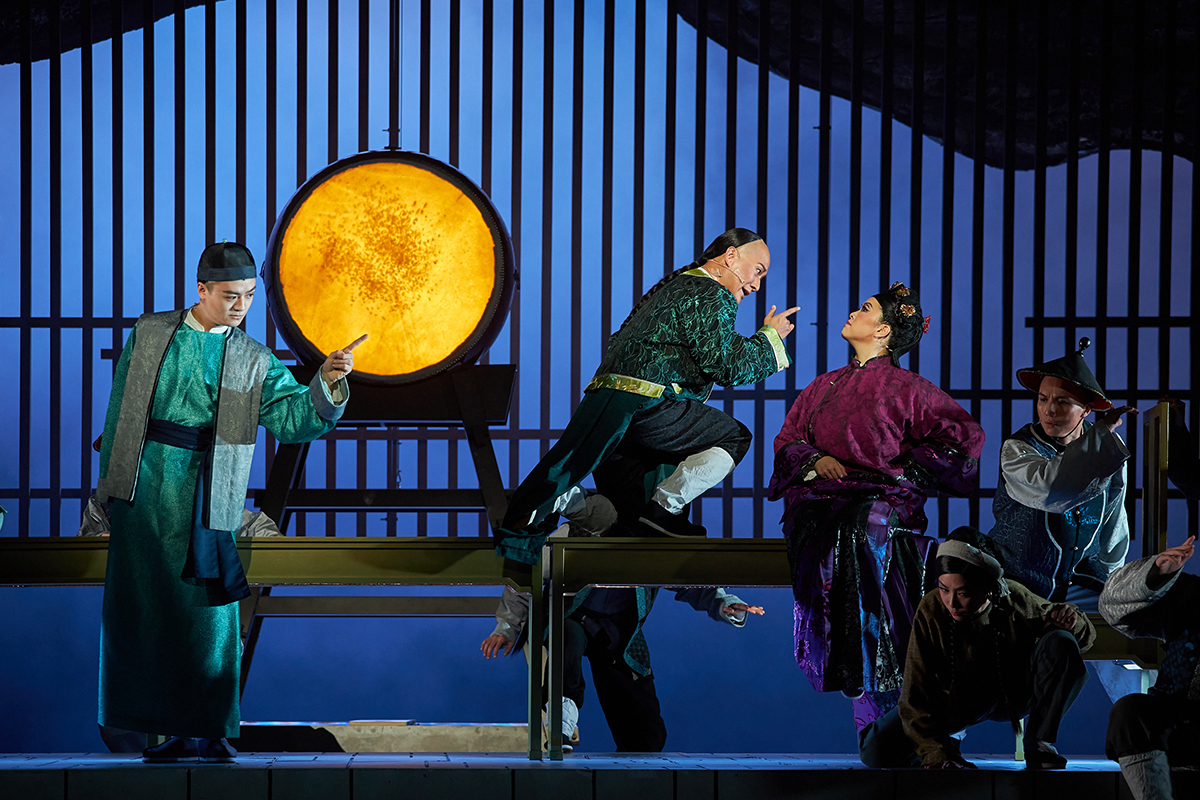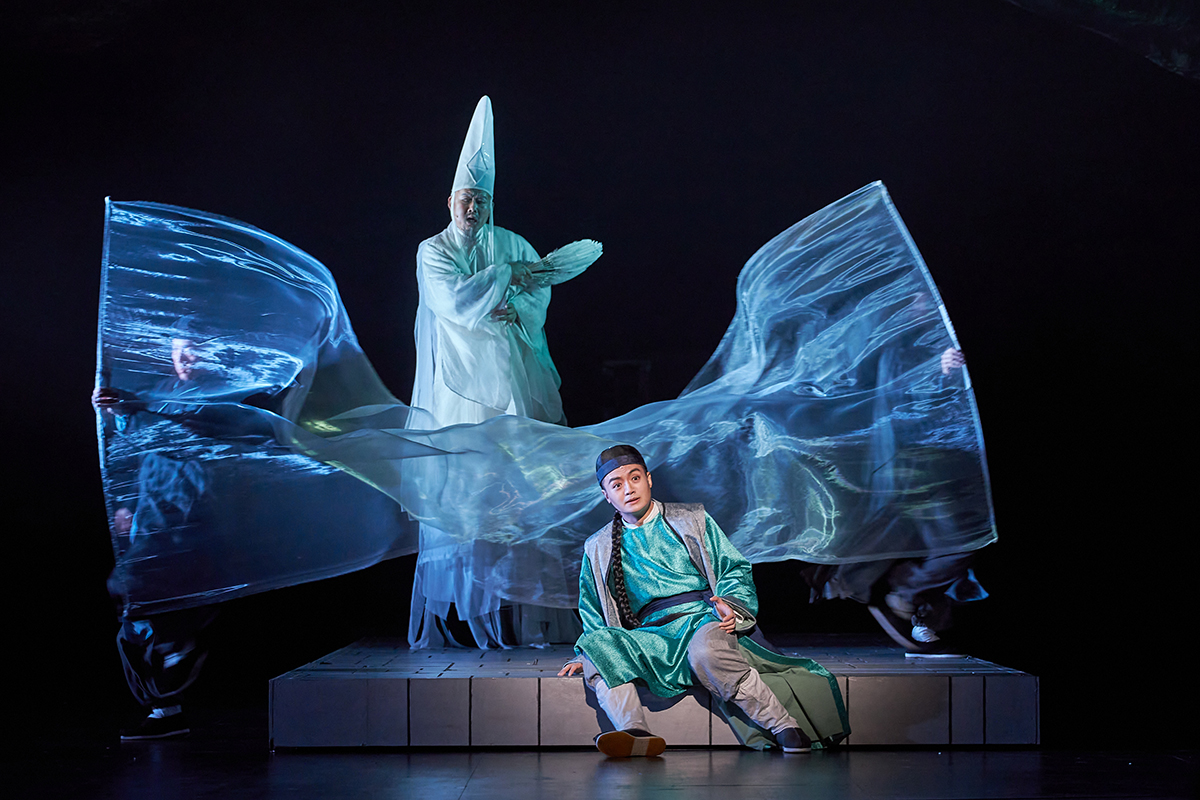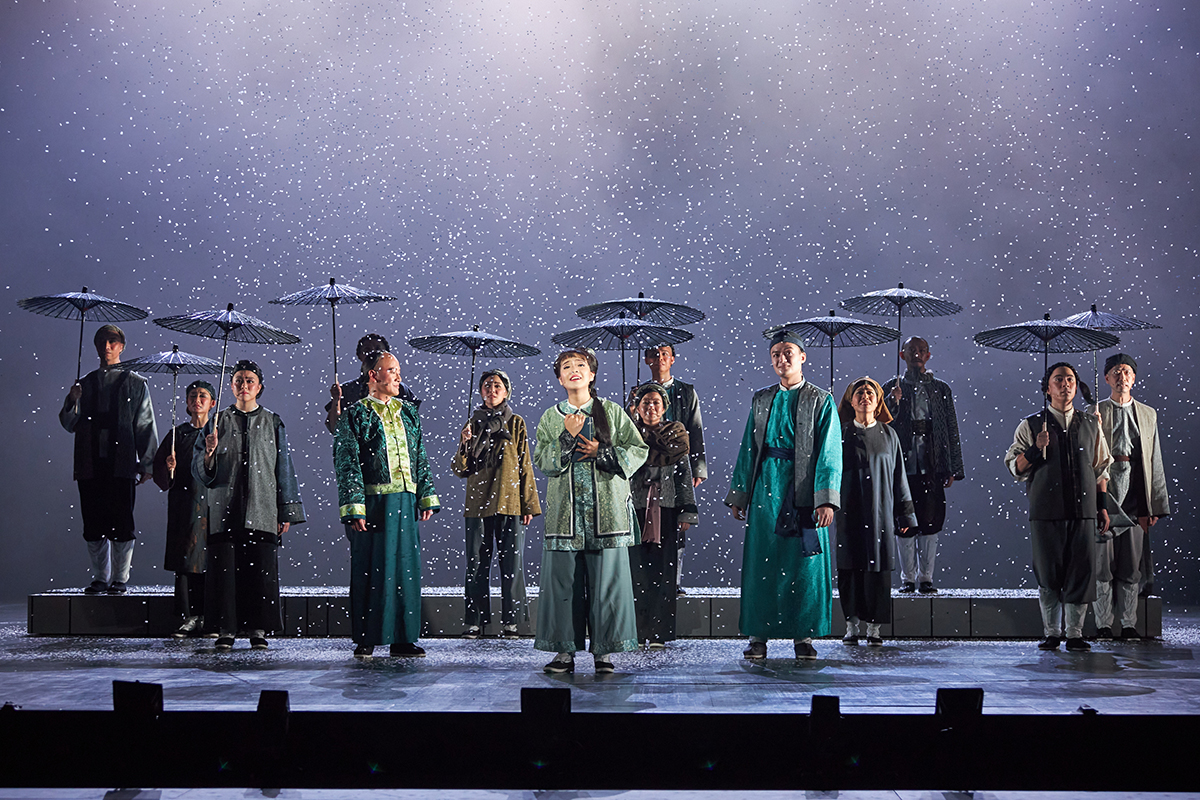The Eight-year Journey of The Impossible Trial
Musical - The Impossible Trial – Soundtrack
All tracks are available on the following online streaming platforms.
Apple Music|MOOV|Spotify|YouTube Music|JOOX|KKBOX|Instagram Music
One fateful day in early 2014, composer Leon Ko and lyricist Chris Shum had a lightbulb moment – what if they wrote a musical set in the Qing dynasty? The pair then approached playwright Cheung Fei Fan, whom they had worked with on the award-winning musical The Passage Beyond, to outline the story plot. The project drew the attention of the West Kowloon Cultural District, who later decided to commission the work. In 2017, after three years of development, the music, lyrics and book were ready for the production process to begin: Hong Kong Repertory Theatre (HKRep) joined as a co-producer, Fong Chun Kit came onboard as the director, and the casting took place in Hong Kong and Macau. In 2019, following two years of preparations and rehearsals, the curtain was raised on an unprecedented preview run. However, the official premiere, originally scheduled for 2020, was repeatedly postponed due to the Covid pandemic. Now, eight years after the project was conceived, The Impossible Trial is finally opening in September 2022.
The fact that The Impossible Trial had a preview run makes it something of a historic first. In Hong Kong, a musical simply can’t begin to take shape until it has been commissioned, and it’s rare for a creative team to get a production period of more than a year, let alone a preview run. If you want to improve a work, your best chance is to hope for a second run that may or may not happen. By contrast, in the West, commercial musicals commonly take seven or more years to develop and produce, and have a months-long preview run, during which important adjustments are made based on audience feedback. This process greatly improves the quality of a work and in turn helps with its longevity – many classic musicals have been running for decades. The Impossible Trial marks the first time that a Hong Kong musical has had the luxury of being able to emulate the Western-style theatre production process.
A preview run helps enhance the final production by giving the team the space to make mistakes, and the opportunity to make bold choices and see how the audience respond. Fong calls the preview a “game of experimentation and addition” and the official run an “exercise of reduction”. “The team wants to give the audience their best, but to do that they have to first experiment by laying everything out and exploring all the possibilities. The preview is not a time to play it safe,” he explains.
Qing dynasty meets the modern world
In the preview version, a multi-narrative structure took the plot back and forth between the Qing dynasty and the present day. The idea was to provide more theatrical layers and perspectives for the audience to explore the theme. For example, the show opened with a group of modern characters recounting the Qing dynasty-set story, before the audience was taken back in time to see it unfold. Fong says that after collecting audience feedback, the team realised that this multilayered set-up actually distracted the audience from the main story rather than helping them invest in it. This led to more than 20 rounds of revisions, involving extensive changes to the book, the music and lyrics, and even the visual effects. To ensure that the audience were taken directly into the action, the creators removed a considerable number of characters and musical pieces, as well as the modern-day plot. In the end, it was decided that the narrator and actors would wear Qing-dynasty costumes to set the context of the story, while modern touches would be embedded in the detail to cater to the taste of the audience.
Compared to other forms of theatre, musicals have their own unique challenges. As the show’s dramaturg Low Kee Hong explains, musical theatre is both driven and confined by its song-and-dance format: when musical numbers are the main story-telling tool, it can be hard to tackle overly complicated plot structure or content. In this sense, The Impossible Trial is attempting the near-impossible task of laying out a complex criminal case, in a court setting, through a series of songs, while at the same time trying to keep the plot easy-to-follow, entertaining and thought-provoking.
For Ivanhoe Lam, the staging director and choreographer of the show, there was another complication: although the Qing costumes helped the actors get into character in the period setting, their western dance training inevitably made their movements look modern. “For this reason I designed the choreography with a contemporary mindset, then circled back and mixed in elements of traditional Chinese dance to ‘spice it up’. I thought that this blend of Western and Chinese, modern and traditional, could be more enjoyable and inspiring for the audience,” he explains, adding that in musical theatre, it’s vital to visualise the music via body language and movement. “Leon Ko is an expert in musical storytelling. Every one of his songs tells a compelling tale, and that affects how the actors move their bodies while singing. When I choreograph a song, I need to pick out where to stress and punch, and how to give the movement a stronger sense of musicality, so that the visuals and the music synchronise seamlessly.”
Scenographer Wong Yat Kwan points out that while the Qing-style costumes are reminiscent of outfits from the period, certain details, such as the fabric and silhouette, received a modern treatment. For example, the formal dress worn by the court officials features a special design that replaces traditional embroidery with patches of colour that look distinctly modern when lit. Wong thinks that this mixture of period and contemporary styles in costume design helps breathe more life into the characters: “When you inject a modern sensibility in a subtle and constructive way, you help the actors interact with their characters and add more emotional texture to their performances.”
The complex art of musical storytelling
Believing that the music should reflect the time and context of the plot and character action, composer Leon Ko incorporated traditional musical elements from Cantonese opera and Peking opera into his compositions. Cleverly executed, the result does not feel dated or parodied. “You can write a song in the recitativo dialogue form of Western opera and have someone sing it in Cantonese opera style – the two worlds can be brought together, and there’s no need to distinguish one from the other. I just wanted to do it in a way that feels right for the character in that moment,” he says. Shum laughs, “But you left me with the tricky part! Even though it was supposed to be recitativo, you wrote it in complete musical phrases, so instead of spoken dialogue, I had to write lyrics. The challenge is conveying the information to the audience. Given the same length of time, Chinese lyrics can deliver way more information because characters are single-syllable, not multisyllable like English words.” As this can result in too much information for the audience to process at once, Ko purposely repeated phrases in his compositions so Shum could reiterate important facts in different ways through the lyrics, helping the audience digest and retain the information.
Ko also wrote individual themes for the main roles based on their character traits and arcs. The protagonist Fong Tong Geng’s theme, for example, is impressively forceful and grandiose. “He’s a domineering person who knows how to command a situation, so his theme is a complete melody – it sounds like he’s making a full statement,” Ko says. As for the show-stopping 11 o’clock number – a term used to describe the most pivotal and climactic song in a musical – Ko admits that, even as an experienced songwriter, he went through two dozen drafts before completing it. It was a struggle, to say the least.
To write the lyrics of this monumental number, Shum took inspiration from Laozi’s Tao Te Ching, and used similar water analogies to illuminate the overarching message of The Impossible Trial – do what’s right, even when it’s hard. Cheung Fei Fan gives a vivid metaphor: “One drop of ink is enough to turn a whole glass of water dark. So how do you make it clear again? Simple, pour the glass of dark water into the ocean. You can never undo the bad deeds you’ve done, but you might find some kind of redemption in doing more good going forward.”
Wisdom is born, goodness is chosen. But in an absurd world, choosing the right road is not always easy. To redeem yourself, you must first confront your demons and persevere, however unwinnable the fight seems. “We named the show The Impossible Trial as an encouragement for people to make the impossible possible,” Ko says. For Low, the show serves more like a gateway: “Our hope is to open a door for self-reflection and awakening that encourages the audience to think about the ways in which they can be a better person.” Rather than preaching the value of being good, the team wants the audience to ask themselves the right questions.
A step towards a brighter future
Hong Kong people are known for their adaptability. Fong quips that production crews in Hong Kong “even have to set up the stage faster than their colleagues in the West”. But despite often being forced to "operate in survival mode” theatre professionals have still managed to put on great shows. However, he notes, if we only live in “survival mode”, we’ll always be playing catch up. “The high quality of theatrical productions in the West is a result of the time and resources people are willing to invest in them,” he adds. “Take the example of our revolving stage. In the past, we’d never get to rehearse with a revolving stage, what often happened was that once we moved to the performance space, we realised that the rotation slowed everything down, and we had to revise scenes and make artistic sacrifices to make things work. That’s something that wouldn't usually happen in the West. Fortunately, this time around, we got to use a revolving stage from day one of the rehearsals. It allowed us to factor in the time required for it to turn before we started, which eliminated a lot of uncertainties. We even had time to fine-tune the lighting and sound effects.”
Ko recalls that in previous productions, there were times when he had to write 20 songs in six months, and a third of the music wasn’t finalised when rehearsals began. In contrast, for The Impossible Trial, the team had three years to work on the music and lyrics, and two years to finish the book. Everything was in order before the first table read, and there was even a preview run. All of this was a luxury, but a necessity, too. “Having the music, lyrics and the book all there during the table read really enabled us to assess the show as a whole and identify problem areas,” Shum says. “And let’s not forget that it’s a trial, so it’s very helpful to have all hands on deck to think through the case details and make sure there are no holes in the plot.” Fong adds that having all of the musical numbers ready at rehearsals greatly enhanced the performances: “A successful musical has to have those climactic, explosive moments where everything just comes together at once. This requires the actors to be very familiar with the material, so they can move and sing to the music with absolute precision.”
Although it may be hard for future productions to replicate the luck and luxuries that blessed The Impossible Trial, Cheung hopes that the show can provide some lessons and insights for the industry at large. “Musical theatre has been produced in Hong Kong for almost half a century, but we’ve yet to develop a comprehensive system for musical production,” he says. “The Impossible Trial marks the first time we’ve been able to develop a musical from start to finish the proper way, instead of the usual approach of ‘We have the venue booked in a few months, may as well write a musical’. That’s not how you do it. Additionally, being able to present the show to the audience as an experiment, but still with production values, was instrumental for its development and completion.” Shum even hails the making of The Impossible Trial as a step towards the healthy development of musical theatre in Hong Kong: “This experience proves that we can have it another way. We can write a show before procuring a commission and do it in a way that’s good for the production, instead of making compromises to accommodate the commissioning body and rushing to produce a work that we’re not a hundred percent happy with.”
All creators want their work to reach as wide an audience as possible. Ko believes that musicals can be a great cultural medium for theatre professionals to connect with the Hong Kong audience. “Many Hongkongers have probably never seen an original Hong Kong musical, because it’s not part of the mainstream pop culture here, but we have the power to change that. Musical theatre has the great adaptability of being as high- or low-brow as we want. It also features a combination of art forms including singing, dance and set design. This is not an experience you can get at home from a pair of headphones – you have to be there to feel it,” he says.
Meanwhile, Cheung has his sights set beyond the local scene. “Hong Kong is blessed with a multifaceted and amazingly unique cultural heritage, and was once a world-class cultural hotspot,” he says. “I hope that musical theatre will serve as a vehicle for Hong Kong to connect not only with its own people but the rest of the world. It’s time we started exporting our culture to the world again.” Shum agrees, “Cantonese is actually a great language for musicals. I hope more people will take advantage of this and make more Cantonese musicals in the future.”
English translation by Penelope Zhou
The Impossible Trial (Premiere) digital house programme
The Impossible Trial – a musical Music Video Playlist
The Cliff – Tunes Ting
Epiphany – Lau Shau Ching and Jordan Cheng
Seeking a Divine Answer – Rick Lau
Epiphany (Special Rehearsal version) – Full Cast

